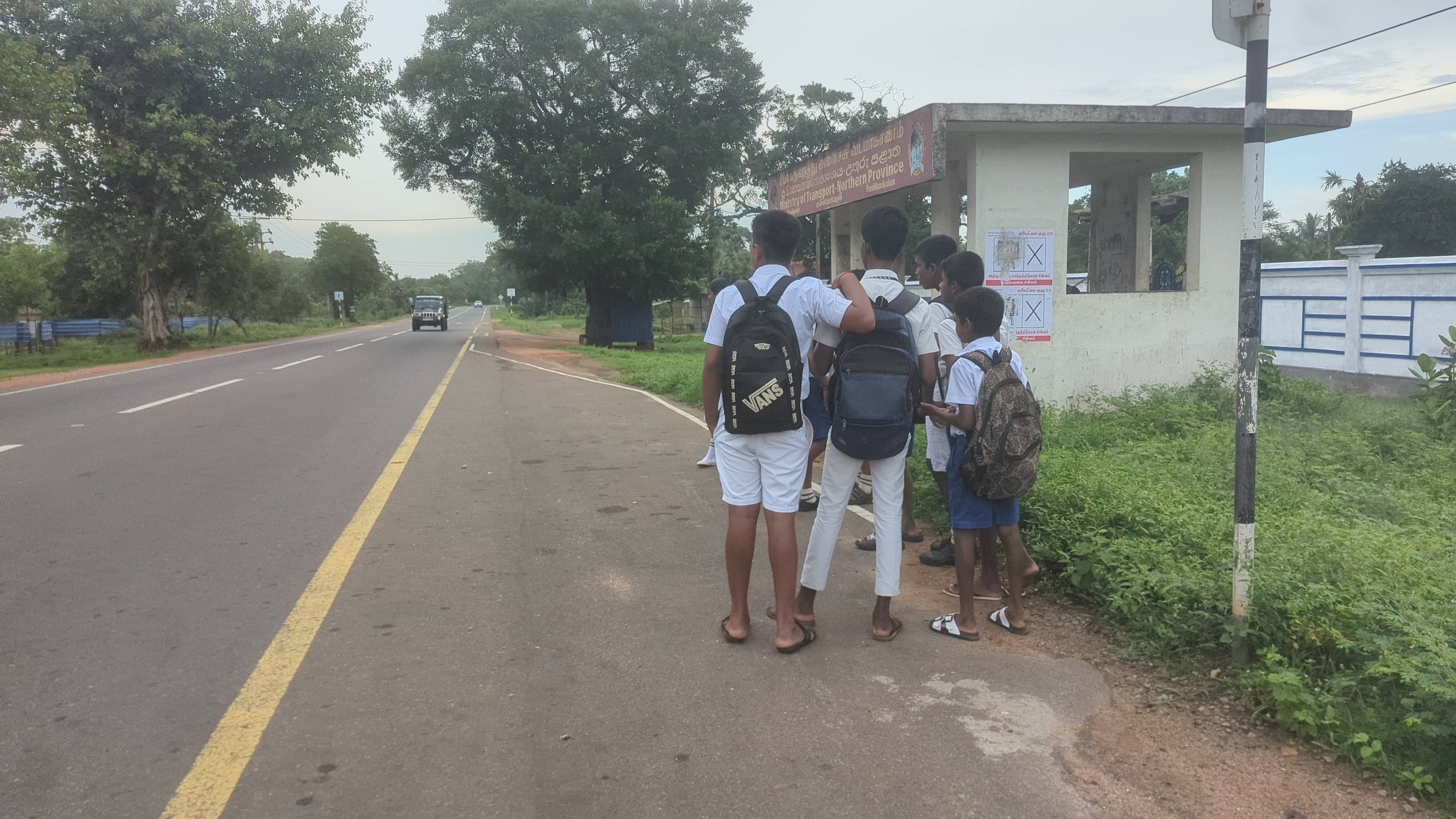
Despite the steady flow of buses along the A9 highway, a critical artery connecting the North-East of Sri Lanka with the rest of the country, Tamil schoolchildren from several villages are being denied rides by both private and government-run buses. Frustrated by what they say is systemic racism and neglect, families and parents have in the past taken to blocking the road in protest, accusing the Sri Lanka Transport Board (SLTB) and private bus owners of discriminatory practices.
The students, hailing from Banikankulam, Kivavankulam, and Thirumurikandi in the Mullaitivu District, are all enrolled at Mankulam Maha Vidyalaya, a key school under the Tunukai Education Zone. Despite the frequent buses on the A9 route, which connects Jaffna in the north to the rest of the country, these students often find themselves stranded, unable to get to school on time.
This is not the first time the issue has come to light. Villagers have lodged multiple complaints with the Human Rights Commission of Sri Lanka, but despite an investigation and promises of action, the situation remains unchanged. The children now face the same problem of being ignored by most bus drivers, both private and public.
In the face of continued neglect, villagers have warned of a wave of protests if the issue is not rectified by the new northern provincial governor. A handful of drivers, both from private companies and the SLTB, do pick up the students, but most do not. The inconsistent and unfair treatment has forced the students to rely on alternative, often more costly and time-consuming, means of transportation, impacting their ability to arrive at school on time.
This issue is not isolated to just one area. Tamil students from other towns and villages along the A9, including Mukhamalai and Mannakulam, face similar difficulties. Parents and activists have pointed fingers at the Sri Lanka Transport Board’s northern division, accusing officials of mismanagement and deliberate neglect when it comes to serving Tamil-majority areas.
Villagers have made urgent appeals to the newly appointed Northern Province Governor and the Sri Lankan President, demanding immediate intervention. Many feel that the Human Rights Commission’s efforts have been inadequate, and without swift action, they are prepared to escalate their protests.
